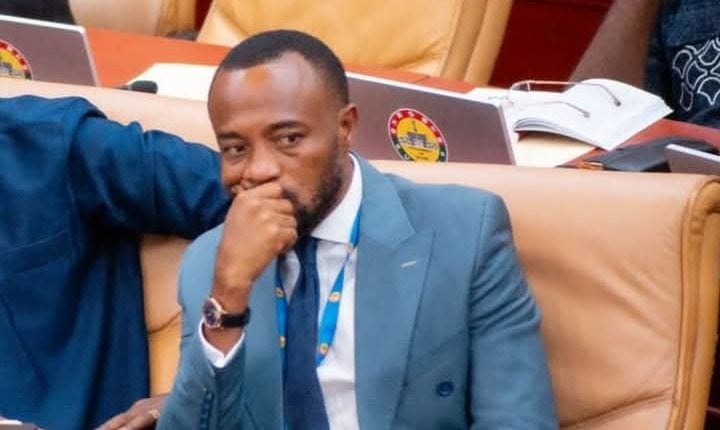The Member of Parliament for Weija-Gbawe, Jerry Ahmed Shaib, has ignited a debate within the New Patriotic Party (NPP) with his assertions concerning the impact of Dr. Mahamudu Bawumia’s concession in the 2024 presidential race. Shaib contends that Bawumia’s early acceptance of defeat, while lauded by many as a statesmanlike gesture, inadvertently jeopardized the NPP’s parliamentary hold on the Weija-Gbawe constituency. He argues that the timing of the concession, before the parliamentary results were declared, created confusion among voters and emboldened the opposition National Democratic Congress (NDC), nearly costing him his seat.
Shaib’s comments, made during an interview on Asase Radio and subsequently broadcast on Hayford TV, underscore the delicate interplay between presidential and parliamentary races, particularly in closely contested constituencies. He emphasized the importance of carefully calibrated messaging during elections, suggesting that even well-intentioned pronouncements can have unforeseen consequences. According to Shaib, Bawumia’s concession, while perhaps motivated by a desire to uphold peace and stability, was prematurely interpreted as a signal of a broader NPP defeat, extending to the parliamentary level. This perception, he claimed, energized the NDC and their supporters in Weija-Gbawe, creating a challenging environment for the NPP to maintain its parliamentary majority in the constituency.
The MP’s narrative highlights the potential for misinterpretation and the ripple effects of political communication, especially in the charged atmosphere of an election. He explained that while the Electoral Commission had completed the presidential count, the parliamentary results were still pending. Consequently, Bawumia’s concession, delivered before the official announcement of the parliamentary outcome, was easily misconstrued as an admission of defeat across all levels of the election. This misinterpretation, Shaib argues, provided the NDC with an undeserved psychological advantage, allowing them to prematurely claim victory and potentially influencing the behavior of voters and electoral officials.
Shaib’s account provides a glimpse into the complexities of electoral politics and the importance of strategic communication. He recounts how the concession created a sense of momentum for the NDC candidate, who began celebrating prematurely, assuming a parliamentary victory based on Bawumia’s concession speech. This premature celebration, fueled by the perception of an overall NPP defeat, placed added pressure on Shaib and his team, forcing them to redouble their efforts to ensure the integrity of the parliamentary vote count. He describes a tense situation where he had to remain vigilant and ensure the Electoral Commission adhered to due process in declaring the final parliamentary results, amidst the backdrop of the NDC’s premature celebrations.
This situation forced Shaib to navigate a delicate political landscape. He had to counter the narrative of an impending NPP defeat, reassure his supporters, and simultaneously maintain a respectful stance towards Bawumia, a prominent figure within the NPP. Shaib’s recounting of these events suggests a degree of frustration with the unintended consequences of Bawumia’s actions, while simultaneously acknowledging the former flagbearer’s commendable intentions. His comments provide valuable insight into the potential pitfalls of preemptive pronouncements in politically sensitive contexts.
The incident raises important questions about the relationship between presidential and parliamentary elections, the timing of concession speeches, and the impact of political messaging on voter behavior. Shaib’s assertions, whether viewed as a critique of Bawumia’s political strategy or a reflection on the sensitivities of electoral processes, highlight the need for careful consideration of the broader implications of political statements, particularly in close electoral contests. The Weija-Gbawe experience serves as a case study for the potential impact of national-level political decisions on local electoral dynamics. It emphasizes the interconnectedness of various levels of elections and the need for coordinated messaging within political parties to avoid unintended negative consequences.


